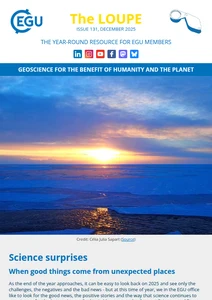President: Cinzia Bottini
(Emailssp@egu.eu)
Deputy President: Marc De Batist
(Email)
ECS Representative: Shradha Menon
(Emailecs-ssp@egu.eu)
The Stratigraphy, Sedimentology and Palaeontology Division (SSP) focuses its activities on all aspects of the sedimentary record. About 70% of the Earth surface is covered by sedimentary deposits, which are eroded and deposited right at the contact between the solid lithosphere and the atmosphere, biosphere and hydrosphere. Sedimentary rocks record the history of our planet since almost 4 billion of years and play a pivotal role for our understanding of the evolution of life. This deep-time archive of Earth history is studied with a wide range of analytical techniques providing ever stunning details on the evolution of our planet. Sedimentary basins host important natural resources like coal, gas, oil, ore deposits and groundwater and therefore a better understanding of the physical, chemical and biological processes controlling the formation and distribution of sediments and sedimentary rocks is of utmost importance for our society.
Latest posts from the SSP blog
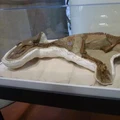
CSI: Sedimentology
INTRODUCTION Shows involving homicides and associated crime scene investigation (CSI) are among the most popular on television. The public is fascinated by the work that goes into collecting and analysing data from crime scenes in the field (Figure 1), whether it be DNA, wounds and bloodstains, footprints, tire tracks, or even evidence of arson. Skeletal analysis can provide a detailed profile, and even a life history, of the victim, and there is almost always a method to estimate time of …
Read more
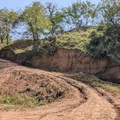
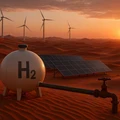
SEDIMENTARY BASINS OF ALGERIA: THEIR ROLE IN EUROPE’S ENERGY SECURITY AND EMERGING GREEN HYDROGEN FUTURE
Algeria is often described as one of the great energy engines of Africa and the Mediterranean, and with good reason. Its proven oil and gas reserves are impressive, but what truly sets the country apart is the extraordinary complexity of its geological history. Over more than two billion years, tectonics, climate shifts and sedimentation created a series of basins that today host some of North Africa’s most prolific petroleum systems. These basins supply large volumes of natural gas to Europe, …
Read more

The Guinness Book of Sedimentology: your guide to the world’s largest EVER sedimentary landforms
There is something about really BIG things that always grabs people’s attention – look at dinosaurs for example. The geological record is littered with the extreme and today we will explore the biggest, the tallest, the deepest and steepest sedimentary structures and landforms ever to grace our planet. Depositional environments ranging from fluvio-lacustrine and aeolian, coastal environments and a range of marine settings have been studied to identify the record breaking dunes, bars, channels, deltas, sheet sands, canyons and more. …
Read more
Recent awardees
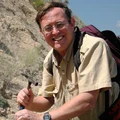
- 2025
- Jean Baptiste Lamarck Medal
The 2025 Jean Baptiste Lamarck Medal is awarded to
Donald Ross Prothero in recognition of a strong research profile in terrestrial stratigraphy, and unwavering support and education of the next generation.
Read more

- 2025
- Outstanding Student and PhD candidate Presentation (OSPP) Award
The 2025 Outstanding Student and PhD candidate Presentation (OSPP) Award is awarded to
Zsanett Szilagyi Subsurface dissection of Holocene inter-reef Halimeda bioherms: morphology, facies and latitudinal variations in the northern Great Barrier Reef
Read more
Current issue of the EGU newsletter
In our December Issue we we are focusing on positive stories of surprises in science. Asmae Ourkiya shared how a prize established in 1900 to reward anyone making contact with alien life (expect Martians) ended up funding more than a century of astronomy research and innovation. Guest blogger Fernanda Matos described the discovery her autism had been driving her interest in Oceanography for years, in her blog on how we can better support people with disability in geoscience. And we highlight some surprises to avoid in our blog on the Austrian visa and Schengen system ahead of EGU26. Also catch up on all the upcoming dates for webinars and funding, including €10,000 to host a Geoscience Day event in your European country, and share your opinions on where EGU should be focusing strategically in the next 5 years in the EGU Members' Survey.
All this and much more, in this month's Loupe!
Read more







